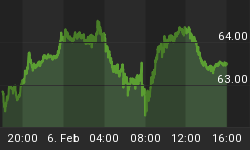For the past few months depositors have been emptying their Greek and Spanish bank accounts and moving the funds to safer places like Germany and Switzerland. This is not surprising. What is surprising is that anyone still has accounts in Greek and Spanish banks.
This is a trend with a limited lifespan. Either sentiment stabilizes and capital starts flowing back into peripheral eurozone countries (possible but unlikely), or the slow-motion bank run continues until the Greek and Spanish banks are empty, or the trickle becomes a torrent as everyone heads for the exits at once, thus crashing those countries' banking systems.
In the second and third scenarios, the result will be capital controls ranging from bank closures (like FDR's 1933 bank holiday), to expropriation of bank accounts (as when Argentina converted dollar-based accounts to pesos in 2002), to restrictions on the movement of wealth across borders. Planing for such capital controls is well under way:
Euro zone discussed capital controls if Greek exits euro: sources
(Reuters) - European finance officials have discussed limiting the size of withdrawals from ATM machines, imposing border checks and introducing euro zone capital controls as a worst-case scenario should Athens decide to leave the euro.
EU officials have told Reuters the ideas are part of a range of contingency plans. They emphasized that the discussions were merely about being prepared for any eventuality rather than planning for something they expect to happen - no one Reuters has spoken to expects Greece to leave the single currency area.
But with increased political uncertainty in Greece following the inconclusive election on May 6 and ahead of a second election on June 17, there is now an increased need to have contingencies in place, the EU sources said.
The discussions have taken place in conference calls over the past six weeks, as concerns have grown that a radical-left coalition, SYRIZA, may win the second election, increasing the risk that Greece could renege on its EU/IMF bailout and therefore move closer to abandoning the currency.
No decisions have been taken on the calls, but members of the Eurogroup Working Group, which consists of euro zone deputy finance ministers and heads of treasury departments, have discussed the options in some detail, the sources said.
Belgium's finance minister, Steve Vanackere, said at the end of May that it was a function of each euro zone state to be prepared for problems. These discussions have been in that vein, with the specific aim of limiting a bank run or capital flight.
As well as limiting cash withdrawals and imposing capital controls, they have discussed the possibility of suspending the Schengen agreement, which allows for visa-free travel among 26 countries, including most of the European Union.
"Contingency planning is underway for a scenario under which Greece leaves," one of the sources, who has been involved in the conference calls, said. "Limited cash withdrawals from ATMs and limited movement of capital have been considered and analyzed."
Some Thoughts
It looks like Greece will be spared immediate capital controls by the formation of a new, pro-euro government that will try to implement the existing austerity plan. It will fail, but that failure won't be apparent for a while. In the meantime, all eyes are on Spain, where borrowing costs are now around 7% for ten-year paper. Like Greece, Spain probably can't become competitive through austerity alone, but unlike Greece it's too big to bail out. So that's where the next battle between reality and wishful thinking will be fought.
Meanwhile, talking about capital controls risks making them a self-fulfilling prophecy, since holders of Greek, Spanish, and Italian bank accounts who read the above will now have an even more compelling reason to empty those accounts.
It's not a big intuitive leap from a temporary freeze on ATM access to a permanent daily limit on withdrawals. Or from Argentina converting dollar-based accounts into pesos to the US converting IRAs full of gold mining stocks into portfolios of treasury bonds. For investors, this means that it's possible to make exactly the right asset allocation decisions and still lose because of government confiscation. This new layer of complexity makes geographic diversification even more crucial.















